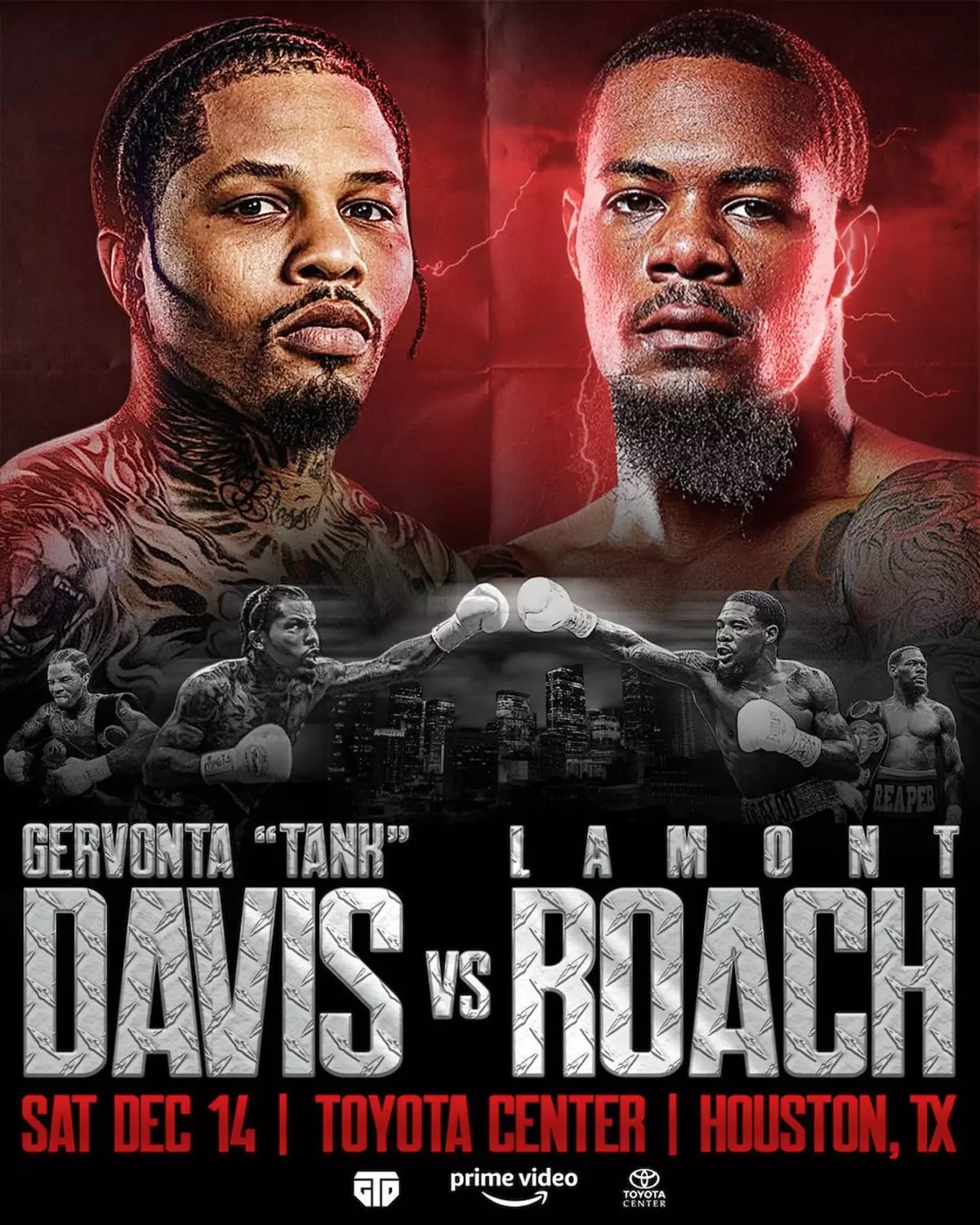The phenomenon of “cherry picking” in boxing is a contentious topic, often invoked during discussions about fighter matchups. The upcoming bout between Gervonta Davis and Lamont Roach on December 14th at the Toyota Center has reignited this debate, particularly with Coach Stephen Edwards defending the legitimacy of Roach as a worthy opponent despite the prevalent criticism. This article delves into the intricate layers of this controversy, exploring arguments on both sides and considering the implications of fighter matchmaking within the sport.
The argument against Lamont Roach as an appropriate challenger for Gervonta Davis hinges on several points. Roach, with a record of 25 wins, 1 loss, and 1 draw, alongside 10 knockouts, is not currently ranked among the elite at lightweight. Critics have noted that he lacks notable victories over top-tier opponents, raising eyebrows at the selection of Roach for such a high-profile event. Moreover, the in-house promotional dynamics tied to both fighters being part of the Premier Boxing Champions (PBC) roster suggests a calculated matchup that doesn’t measure up to the potential excitement of a more competitive clash.
Those advocating for this viewpoint express frustration at what they perceive as a deliberate strategy to curate opponents that highlight Davis’s strengths while minimizing risks. Over the span of Davis’s 11-year career, the notion of handpicking opposition deemed less threatening has cast a long shadow over his legacy, leading fans to consider his management’s choices as a routine practice of fighting “Hors d’oeuvres” rather than serious contenders.
Edwards counters these criticisms by suggesting that the perception of Roach as a cherry pick stems not solely from his achievements but also from the inflated expectations surrounding Davis. He argues that while many fans envision Davis trading blows with prominent fighters like Teofimo Lopez and Shakur Stevenson, the reality of matchmaking often favors less daunting opponents for various reasons, including business decisions and career longevity. Edwards posits that the boxing community’s alignment of Davis’s stature with the necessity for him to engage with elite fighters creates an unrealistic standard that influences public opinion.
In a sense, Edwards believes the fans, perhaps blinded by admiration, classify any match that doesn’t feature a top competitor as an obvious cherry-pick. He appears to emphasize that boxing is a sport roiled in complex tactics, sometimes necessitating softer matchups to build a fighter’s brand or avoid unnecessary risk. For Edwards, the looming question is whether Roach can unexpectedly disrupt the narrative.
This scenario underscores a broader dilemma within the sport: the manipulation of matchmaking in pursuit of commercial viability vs. the integrity of competitive spirit. If the boxing community continues to condemn matchups like Davis vs. Roach as cherry picks, the ramifications for future promotions may be significant. Successful boxers are increasingly scrutinized not just for their in-ring prowess but for their choices of opponents, which could hamper their marketability and legacy if perceived as avoiding genuine competition.
The criticisms against Davis reflect a desire among fans for more transparency in matchmaking, emphasizing the need for fighters to engage with varied challenges rather than conforming to a straightforward trajectory of highlighted victories. The boxing fraternity might create an environment where champion status requires not only talent but also the courage to face formidable adversaries.
Ultimately, the narrative surrounding the Davis vs. Roach fight epitomizes the struggle between commercialization and competitive integrity in boxing. While coach Stephen Edwards defends the validity of Roach as a challenger, the larger boxing community remains skeptical, yearning for bouts that truly accentuate a fighter’s capabilities against an array of talent. As boxing evolves, both fans and promoters must navigate the complexities of expectation and reality in an effort to protect the sporting values that make boxing both thrilling and historically significant. In the end, the match on December 14th will not only affect the fighters involved but may also influence the trajectory of how boxing is perceived by its most ardent supporters.

